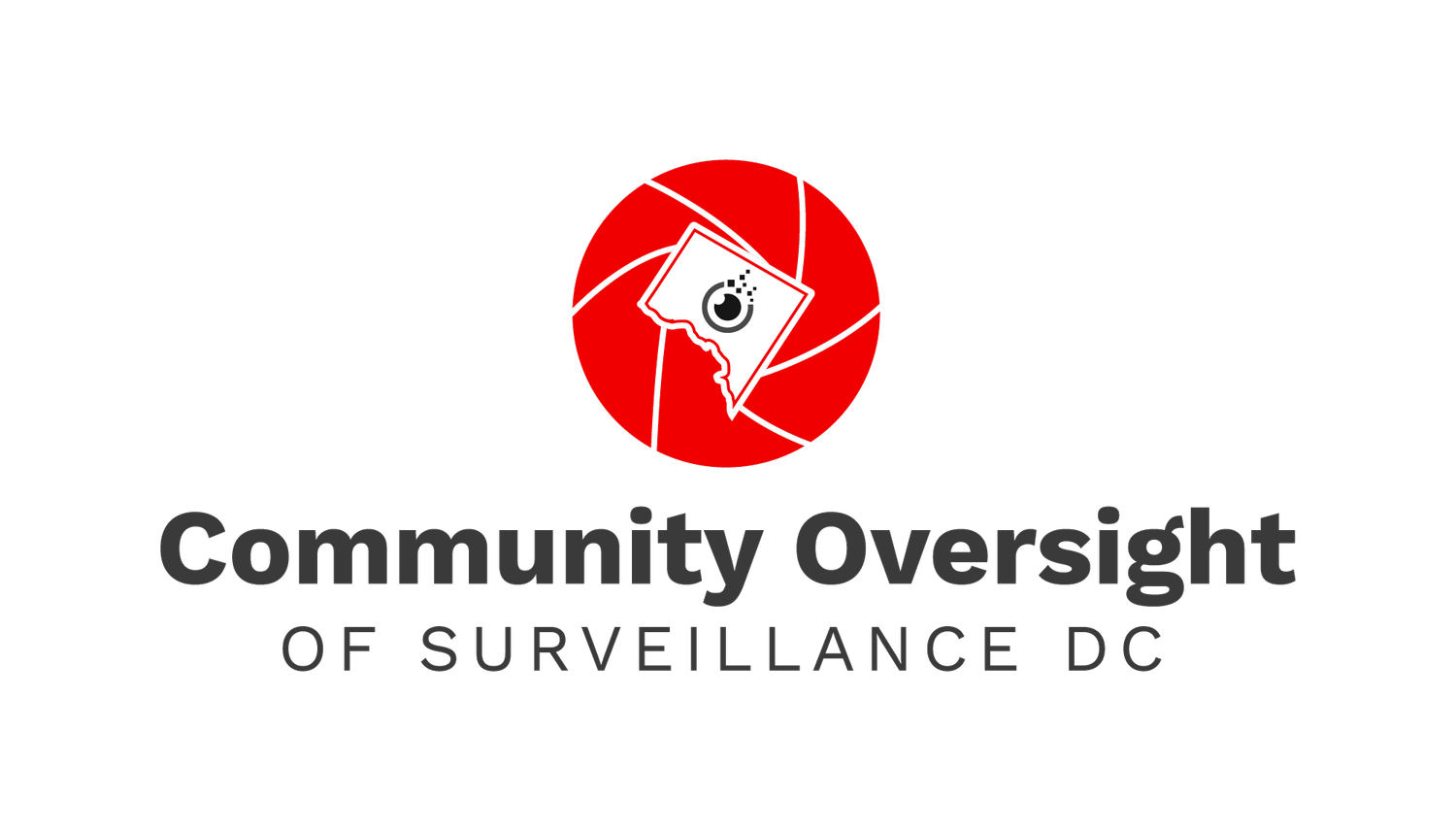Community Oversight of Surveillance DC
Across Washington, D.C, local government agencies acquire and use sophisticated surveillance technology with no public oversight or accountability. This poses a direct threat to the civil rights and civil liberties of all District residents and disproportionately impacts communities of color and low-income communities. It’s time for us to take control with a campaign for Community Oversight of Surveillance (COS).
COS-DC is a broad coalition of local groups and activists working to end the unchecked government surveillance that does not improve public safety and threatens the privacy and other constitutional rights of all community members.
Our Mission
The COS-DC Coalition works to ensure that DC communities, especially Black people and others most impacted by surveillance, have a say in what and how surveillance technology is acquired and used in the District. The COS-DC Coalition centers racial justice in our long-term efforts to end the invasive, unlawful, and/or unchecked surveillance of DC communities by District agencies, including local law enforcement.
Community Oversight of Surveillance – DC is apart of a national movement to putting the power to decide if a given surveillance technology is suitable for their area where it belongs, in the hands of community members and their democratically elected representatives. See the map of municipalities with existing CCOPS laws.
How Government Surveillance can impact you
The Dangers of Video Surveillance and A.I.
Wrongfully Arrested Because of Flawed Face Recognition Technology
How Period-Tracking Apps Can Be Used Against You
Technology 101
-

Closed-Circuit Television Cameras:
An investigation by the Capital News Service found that D.C. has 2.5 times more CCTV cameras in majority people-of-color neighborhoods. D.C. has 345 fixed CCTV cameras and 21 mobile cameras scattered throughout the District.
-

Gunshot Detection Software (aka Shotspotter):
Gunshot detection software is a network of microphones planted throughout a city designed to detect the sound of gunshots and provide police with the location where the gunshot roughly has used Shot spotter since 2006.
-

Mobile Device Forensic Tools (MDFT)
The Metropolitan Police Department uses Cellebrite, a portable machine that can download exact copies of a smartphone’s entire memory. From an October 2020 report on the use of MDFTs nationwide, COS-DC coalition member, Upturn, submitted more than 110 public records requests to law enforcement agencies nationwide.






